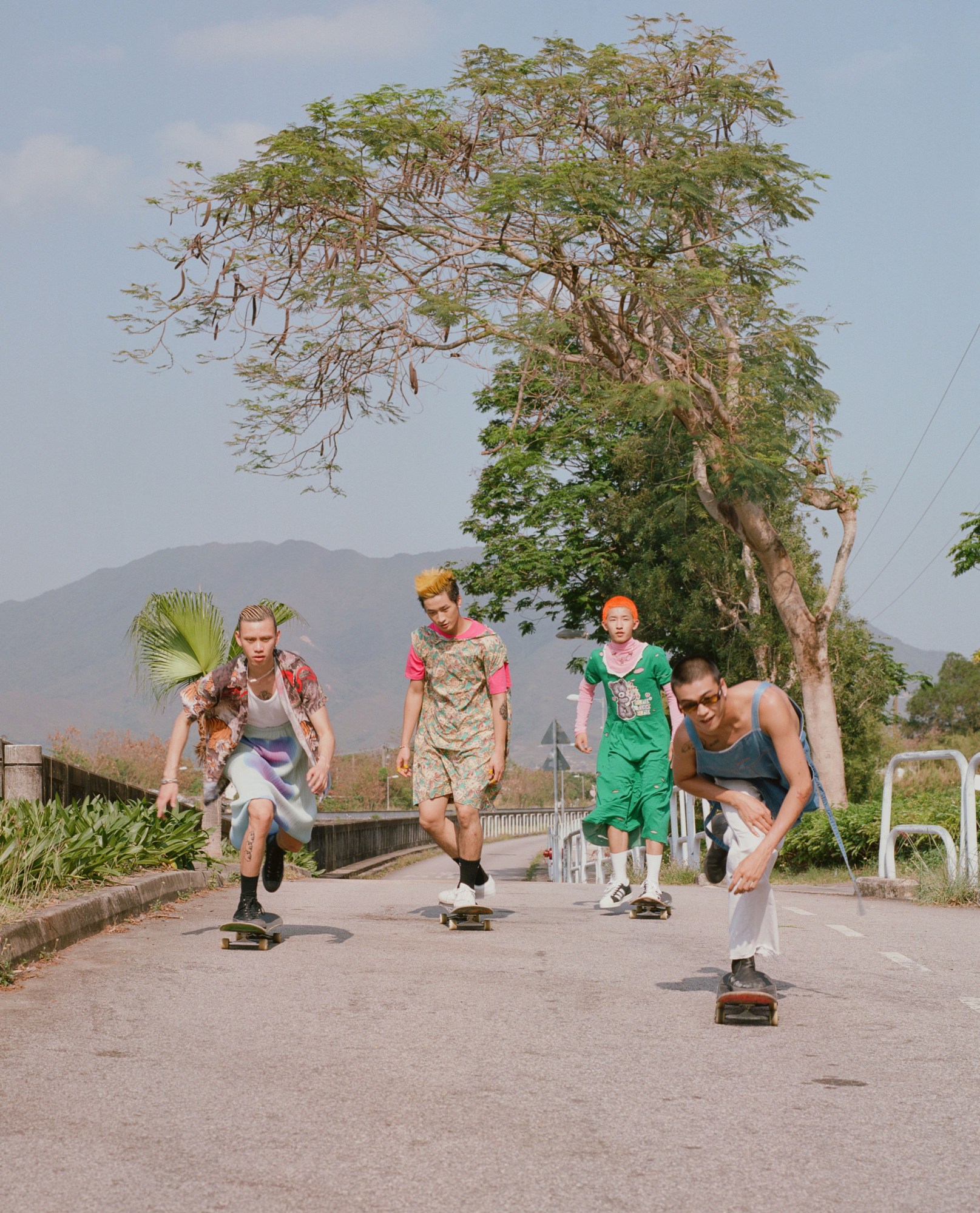Roni Ahn grew up in Hong Kong. She moved there from Korea with her family when she was just nine years old. “I spent the majority of my adolescence here,” says the photographer of the place she recently returned to after five years living and working in London. Landing back in Hong Kong shortly before the pandemic struck, she has spent the past year focussing on a personal project documenting the people of her city and their relationships. “I was able to appreciate Hong Kong in a different light,” she says. “I was out looking for people to shoot when I came across some interesting young skaters.”
Instantly drawn to the four boys — who skate together as well as with local crews self HK and BAKA BAKA — Roni recalls being impressed by the fact that “they all had a very strong sense of individuality”. 22-year-old graphic design student Tomi, she notes, seemed quite reserved despite his bright yellow highlights, while metal fan Cheuk Laam, 22, was full of confidence. She found orange-haired Chui Chai, 17, to be incredibly perceptive and 21-year-old model Noise to be more rebellious in nature. “I was a very shy and introverted kid growing up, and didn’t really do anything out of the ordinary,” she says, “which I think is why I find these boys, who define the world in their own terms, so fascinating. I was less interested in the actual skating and more so in the connection between the boys: this combination of unique, free-spirited personalities bound by the act of skating.”
Shot in a small village on the outskirts of Hong Kong, the friends are depicted wearing colourful, grungy clothes by a riverside. “I wanted to photograph the skaters differently to how they’re usually portrayed, which can be quite one-dimensional,” Roni explains of her collaboration with stylist Perpetua Ip. “With this generation of boys who are more self-expressive and confident in their identities, I felt that there was a new dialogue to be told. Perpetua got it right away and was able to amplify that.”
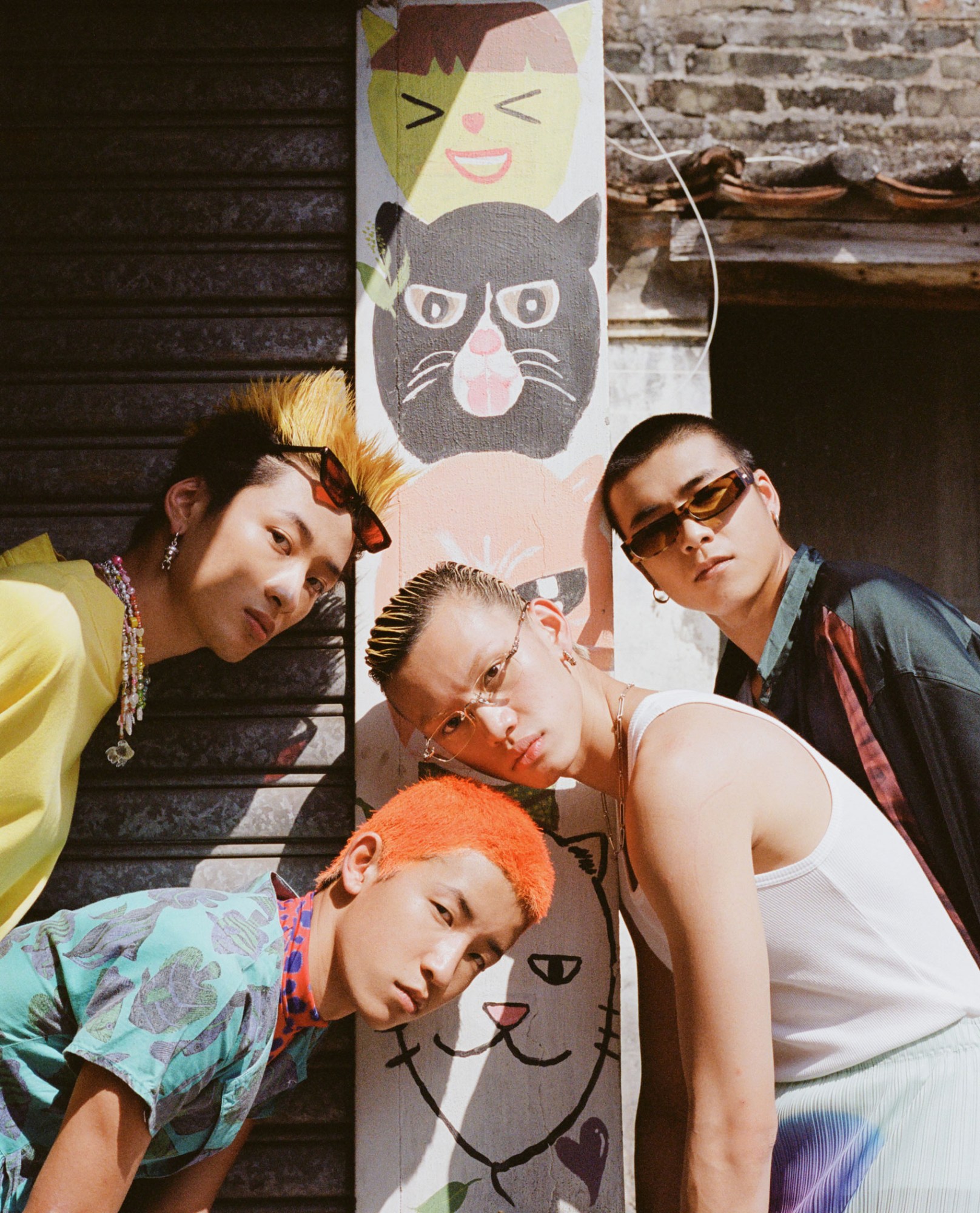
A number of looks put together by Perpetua include floral dresses, Gummo-esque bunny ears and other items that might be considered more traditionally feminine. She had discussed styling options with the skaters prior to the shoot and they were very much on board. “It’s inspiring that this new generation of boys feels less constricted by the preconceived definition of what it means to be masculine — a boy should be able to express his feelings, be vulnerable, feel comfortable to wear make-up or dresses if they choose to, without being questioned about their sexuality or masculinity.”
The result is a beautiful coming of age series documenting friendship, sure, but also hope and ambition. That sense of individuality that first drew Roni to the boys is clear across the playful images. “I think there’s something special about being young, and confident that there are so many possibilities in front of you, despite the current climate with the pandemic and politics,” Roni says. Her favourite photograph from the shoot is one that was taken right at the end of the day. “The boys were pretty tired. They were standing around talking, and daring each other to jump into the sewage water. When I asked them to put their arms around each other for the shot, Cheuk Laam happened to look up in my direction. I love how candid it is.”
Get to know Cheuk Laam, Chui Chai, Tomi and Noise a little better below.
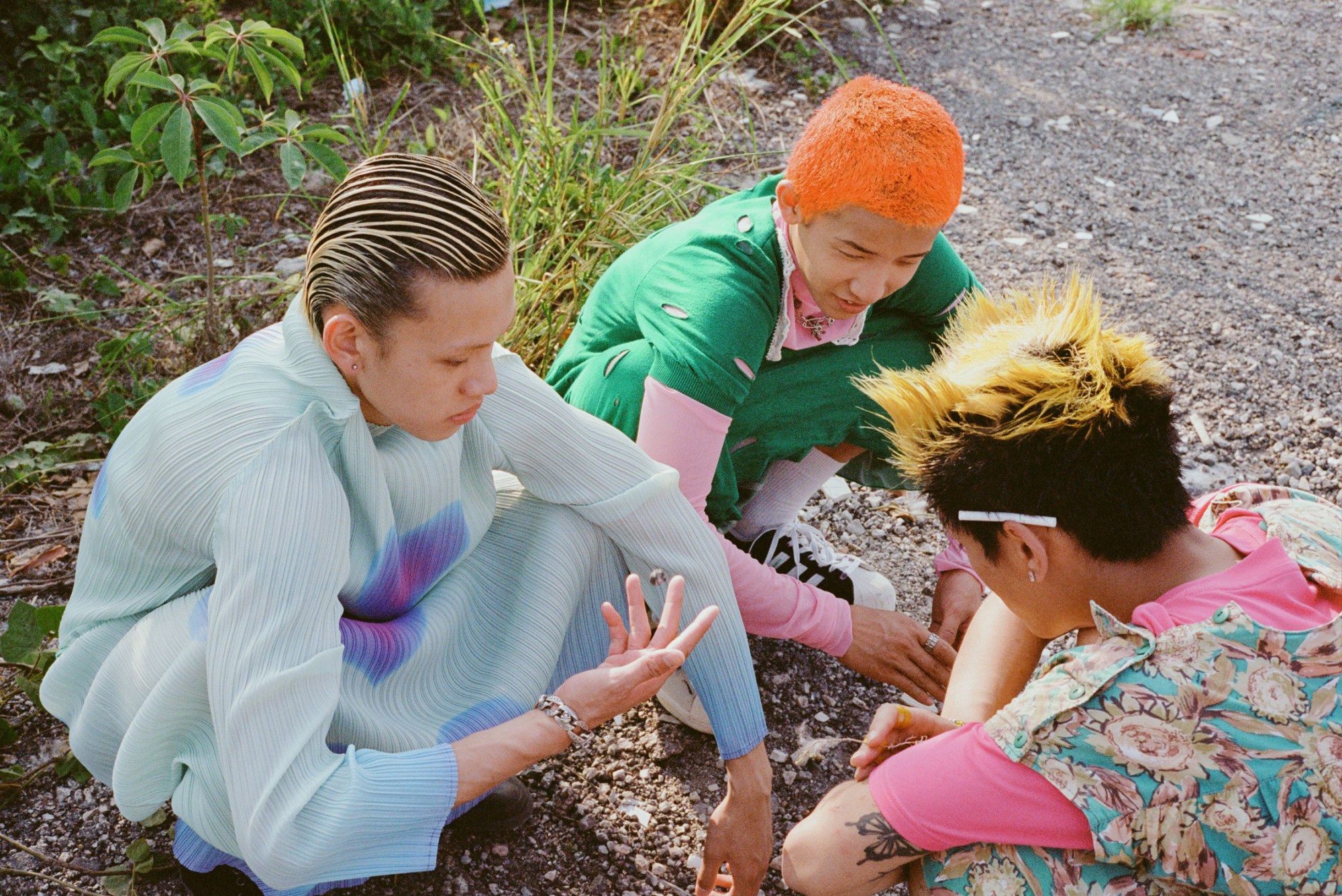
Cheuk Laam, 22, member of self.hk
Tell us about yourself.
I have three cats (originally four, one passed away in 2017). There’s an eight-year-old black one, a nine-year-old fat one, and a one-year-old orange one who I met near my home half a year ago. I like Rage Against the Machine, Limp Bizkit, Korn, LMF and Matt Force. I recently made my first skate life documentary with my friends.
How long have you been skating and what do you love most about it?
Since 2016. I love how you can skate freely in the city. It’s more important to have fun rather than rating who’s better and who’s not. Skating brought me friends and personal growth by building my own style and learning about street culture.
How would you describe the skate scene in Hong Kong? Is it a good city for skating? Is there a strong sense of community?
Though the city is not big, there are skaters in every neighbourhood and we learn from each other’s strength. Some might not meet often but it feels like we know each other well. There’s also seniors like @globestore_hongkong who might not skate regularly now but continue to support young local skaters. They are very respectful to the younger generation as it’s tough for skaters to keep on skating in Hong Kong.
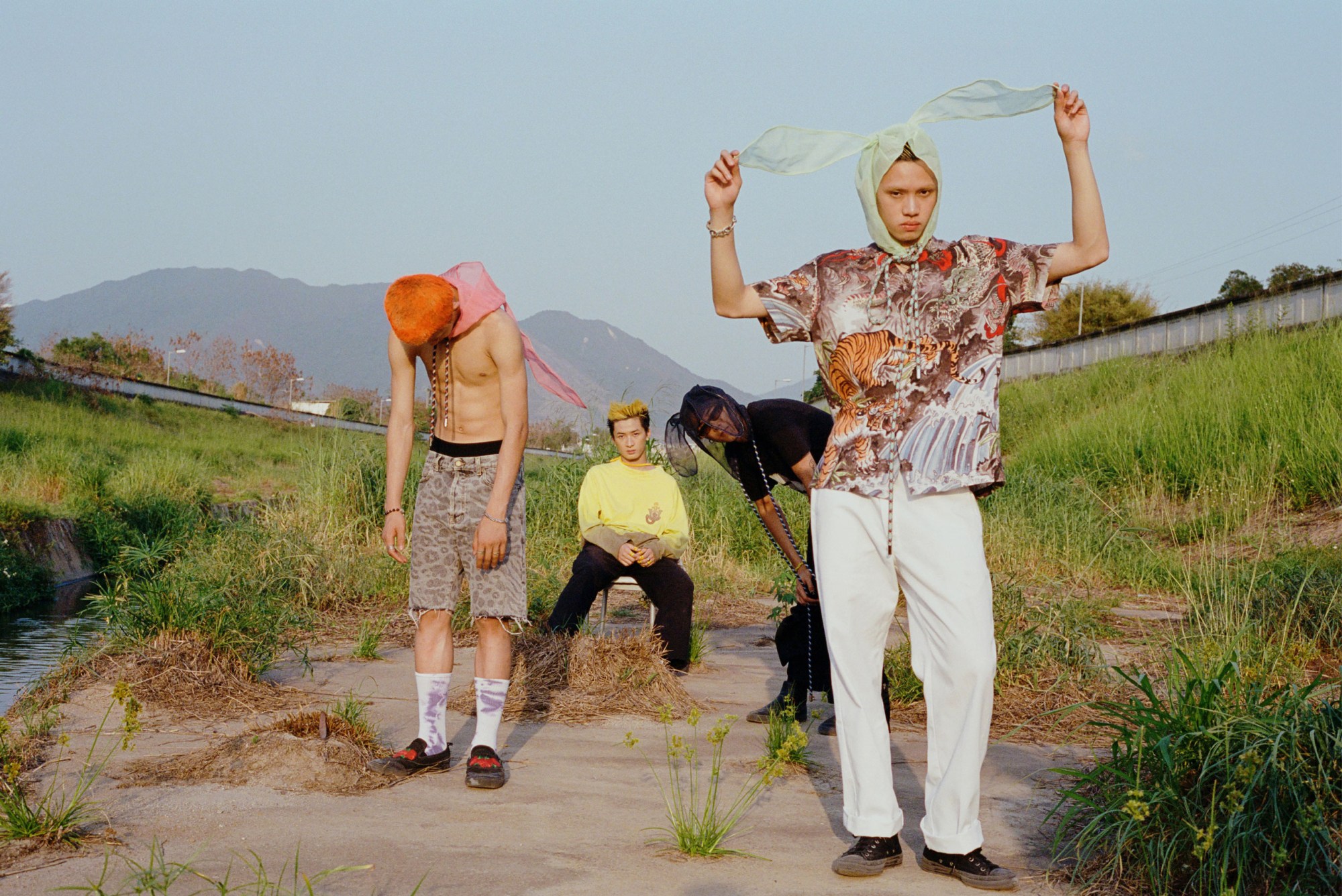
Chui Chai, 17, member of BAKA BAKA
Tell us about yourself.
I’m a high school student and co-founder of farngunlai, an accessory brand and a platform for me to express my ideas and to meet like-minded people. I’m responsible for designing bracelets.
How long have you been skating and what do you love most about it?
Four years. I love skating because it’s freedom — you could skate alone or have fun together. I don’t enjoy ball games as you need to be in a team all the time, but I can skate whenever wherever I want. Totally free.
How would you describe the skate scene in Hong Kong? Is it a good city for skating? Is there a strong sense of community?
Some of the skaters are a bit conservative and don’t accept some subcultures that they think are weird. Skaters should be more open to different things.
What’s the hardest thing about being young in Hong Kong at the moment?
Pressures from social norms or family, limiting young people from doing what they really want to do.
Tell us something interesting about your city.
Living areas in Hong Kong are unbelievably tiny.
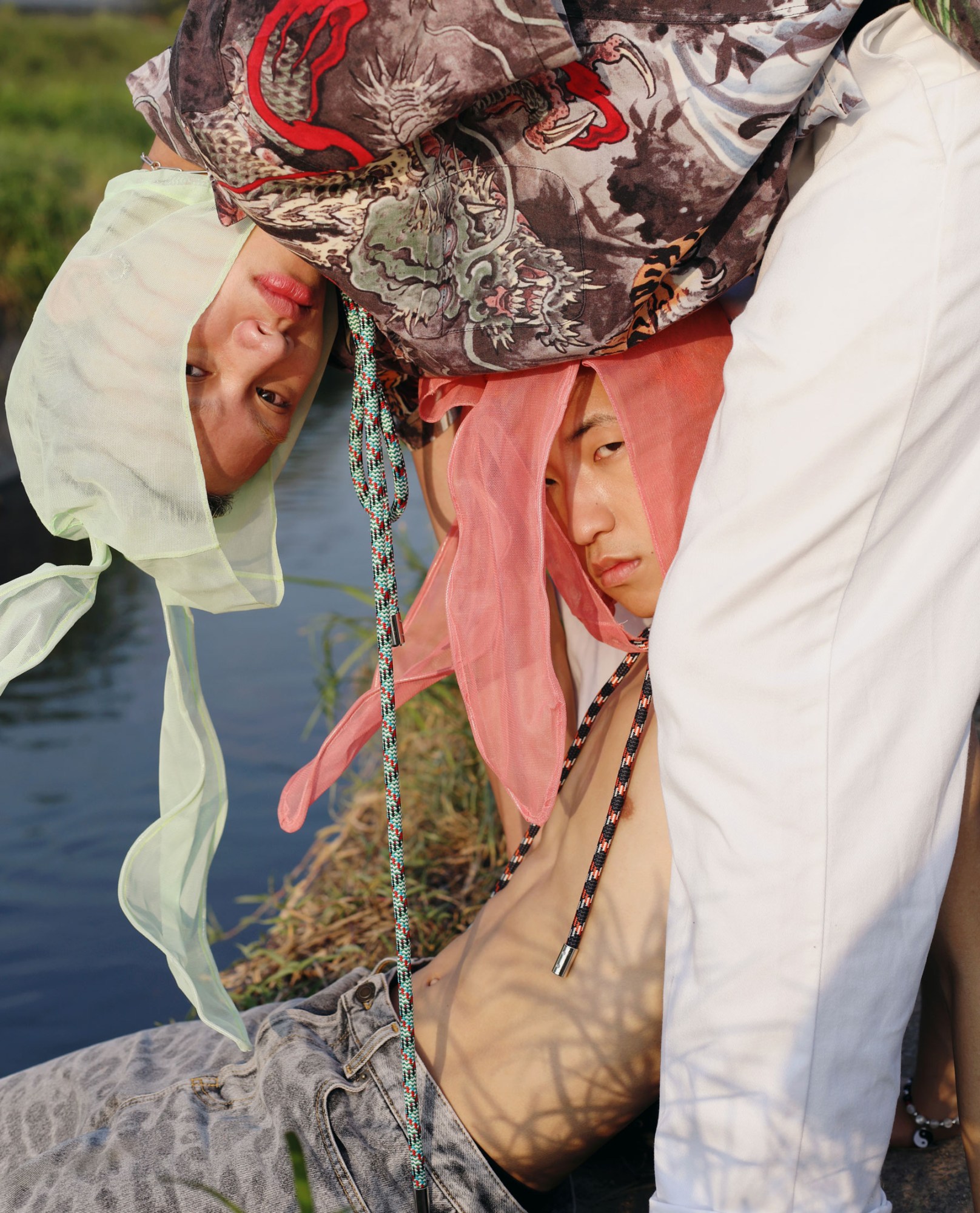
Noise, 21, member of BAKA BAKA
Tell us about yourself.
I’m a model.
How long have you been skating and what do you love most about it?
Since last July. I love how it’s free and wild. I used to give up on things easily and skating has taught me how to keep going no matter how many times and how hard I fall. I’ll just get right up and take every chance — on my board, at life, on a job.
How would you describe the skate scene in Hong Kong? Is it a good city for skating? Is there a strong sense of community?
The pavements of Hong Kong sucks! So many rocks on it. Most pedestrians see skaters as street kids and worry that we might cause injury to them, and don’t appreciate skaters. Hong Kong skaters are friendly and willing to share their knowledge if you go ask them.
What’s the hardest thing about being young in Hong Kong at the moment?
The issue of not trusting yourself, not feeling willing to take the first step to take a risk, and so just settling on a safe job like many others.
And what’s about Hong Kong that everyone should know about?
The mindset of the general public can be quite behind and narrow-minded.
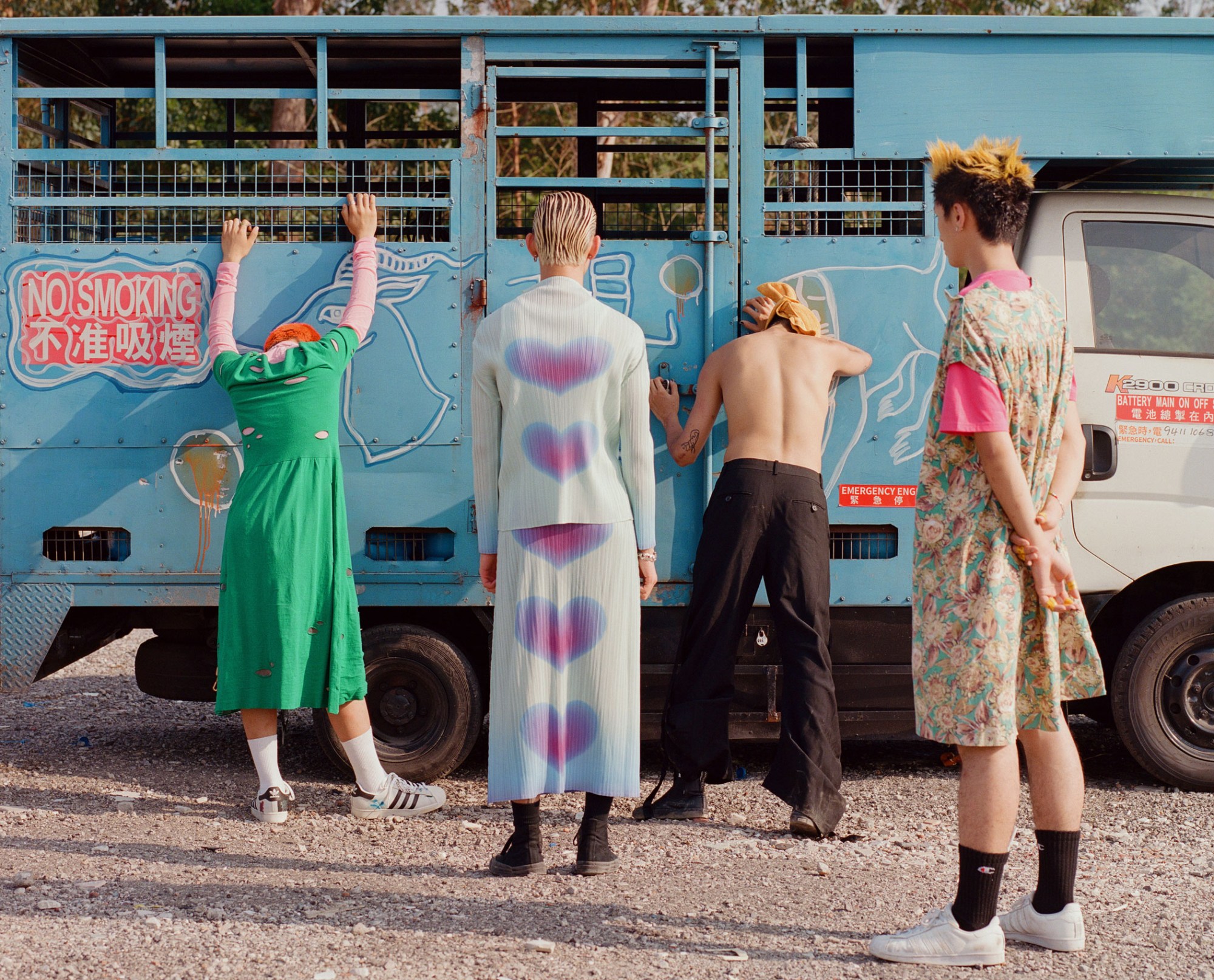
Tomi, 20, member of BAKA BAKA
Tell us about yourself.
I am studying Graphic Design in the UK.
How long have you been skating and what do you love most about it?
Six months. I love the freedom, friendship, life and memories that skating has brought to me.
How would you describe the skate scene in Hong Kong? Is it a good city for skating? Is there a strong sense of community?
The general public thinks skaters are just street kids.
What’s happening in your city that the world should pay attention to?
The diversity of the youth of Hong Kong.

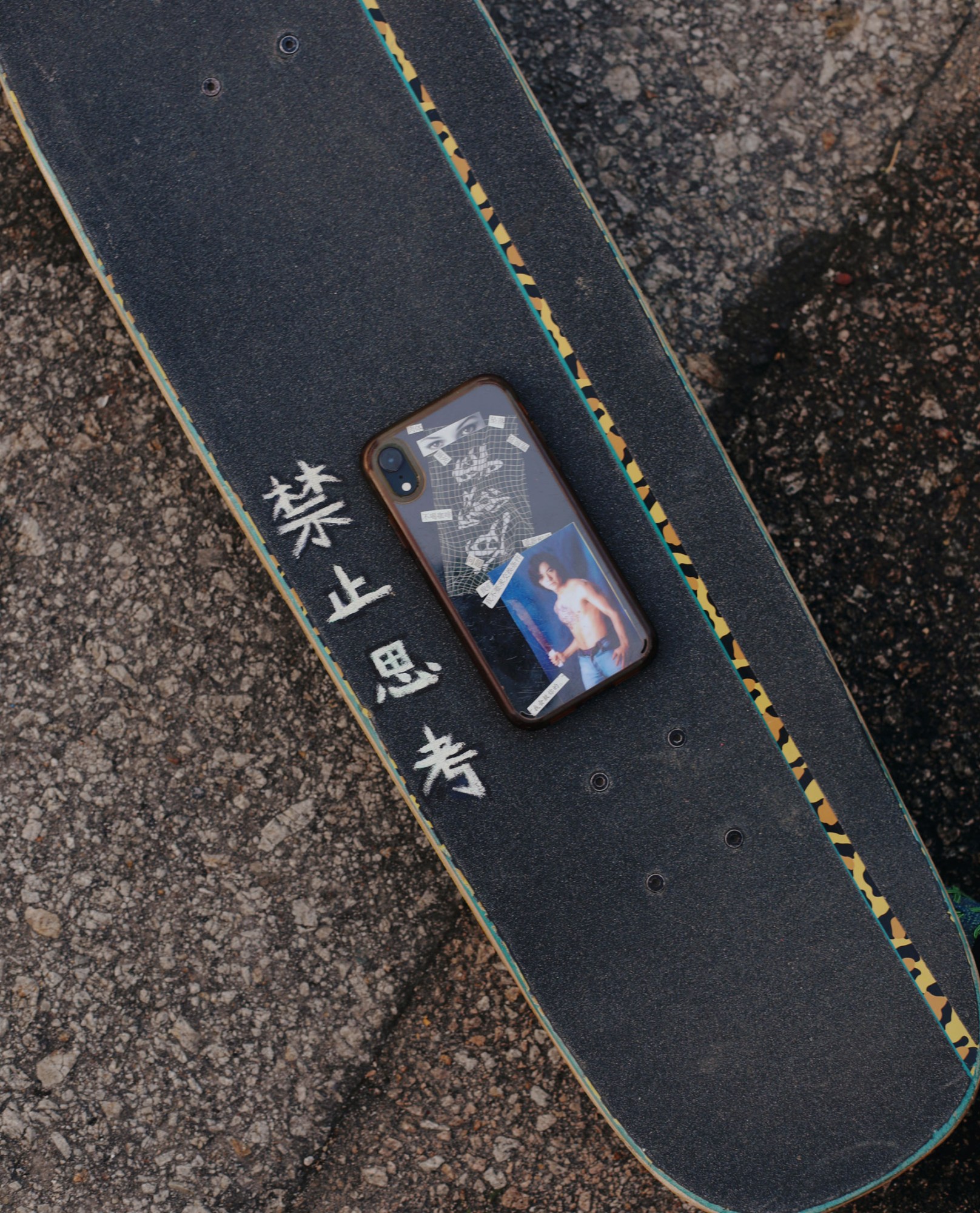
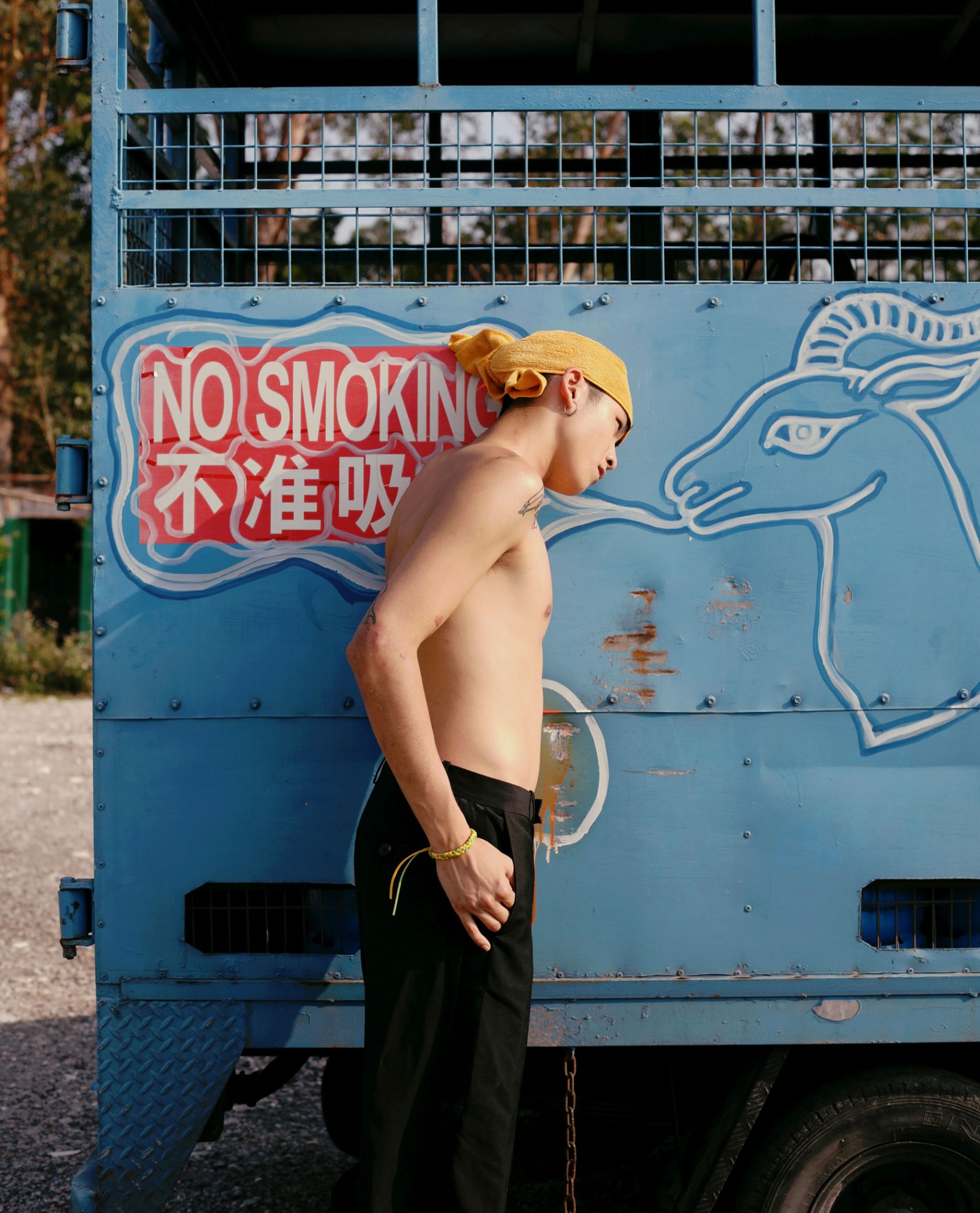
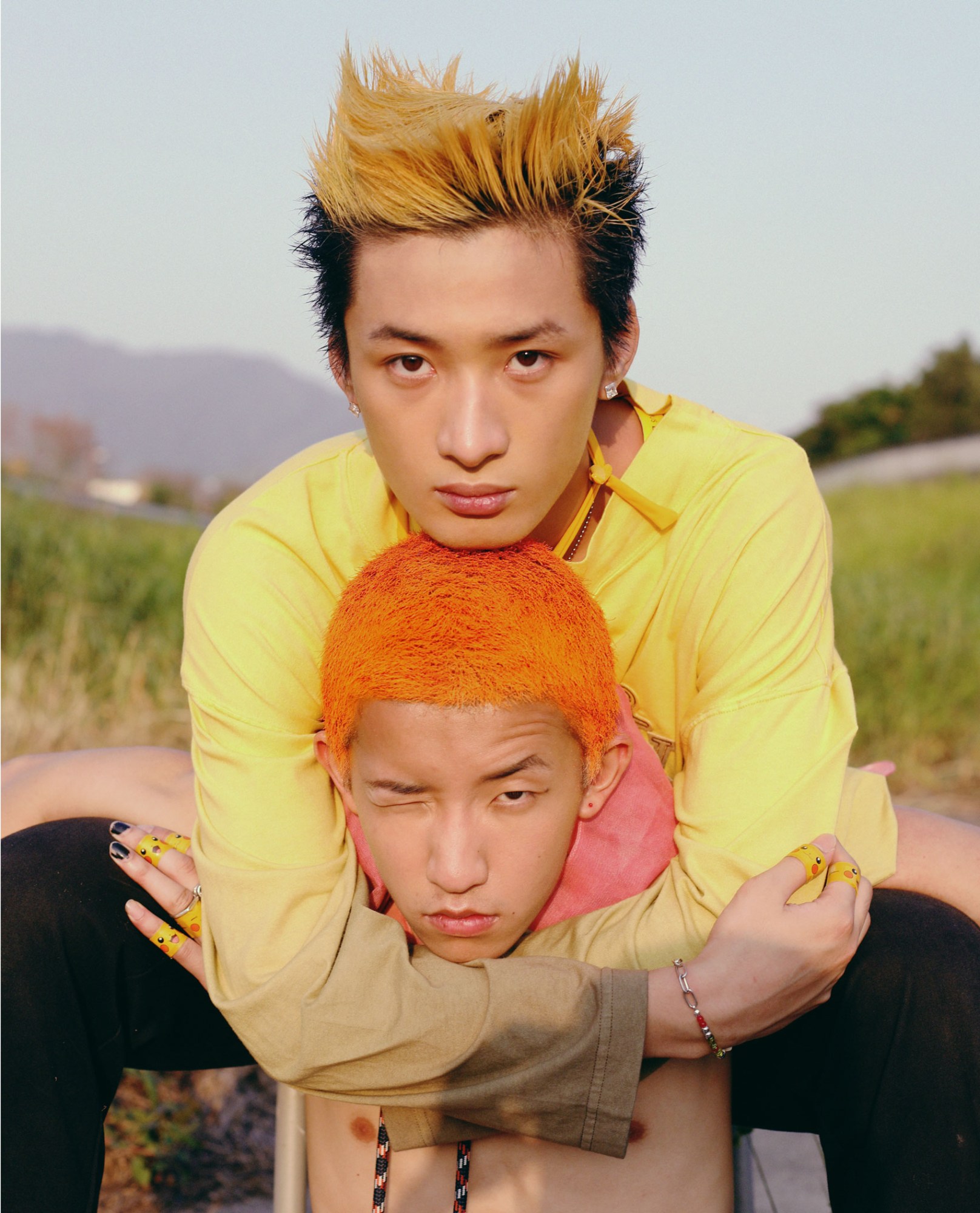
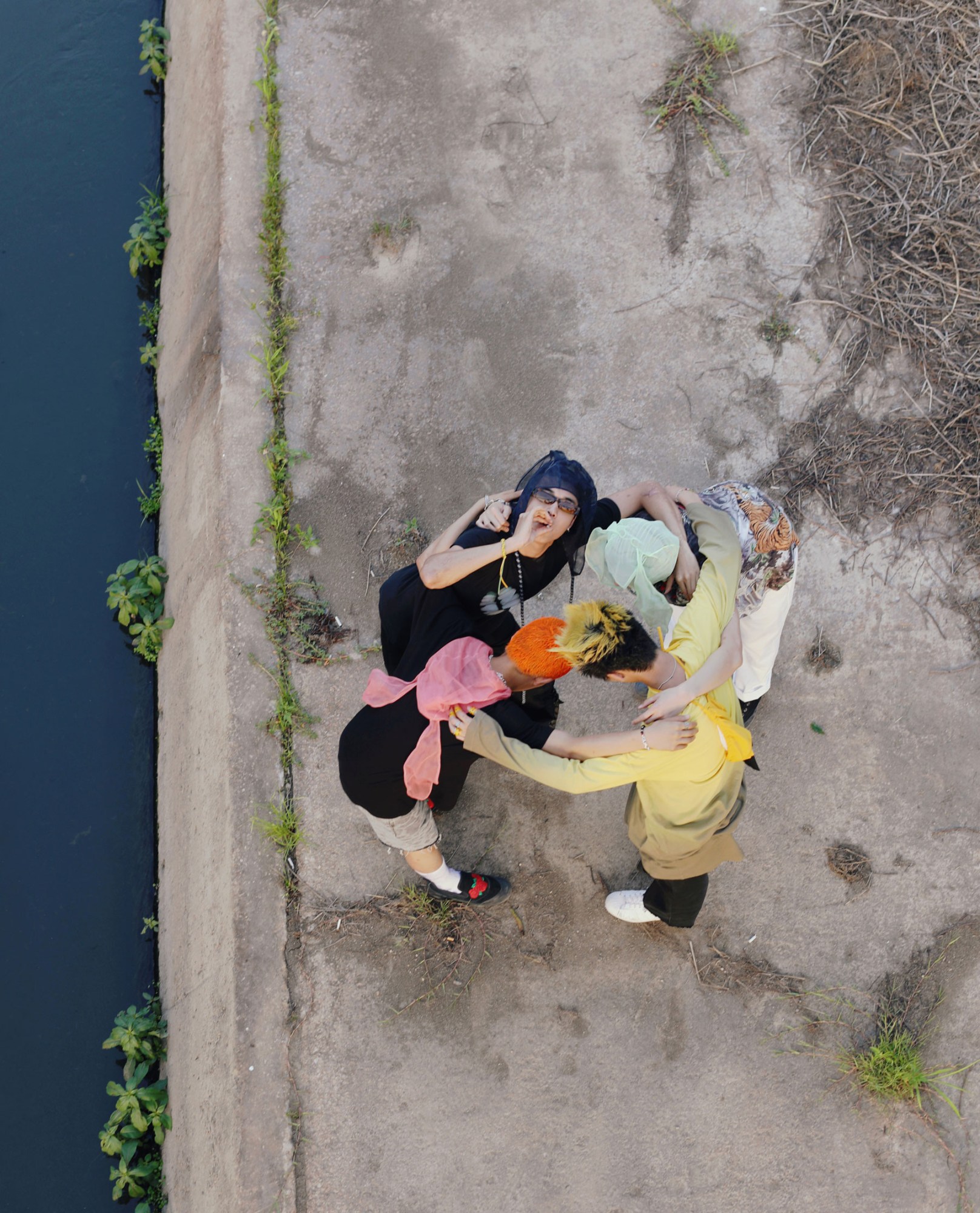
Credits
Photography Roni Ahn
Styling Perpetua Ip and Liz Lau
Make up artist Chi Chi Li
Hair stylist Him Ng @ The Attic
Photographer assistant Lillian Sheng
